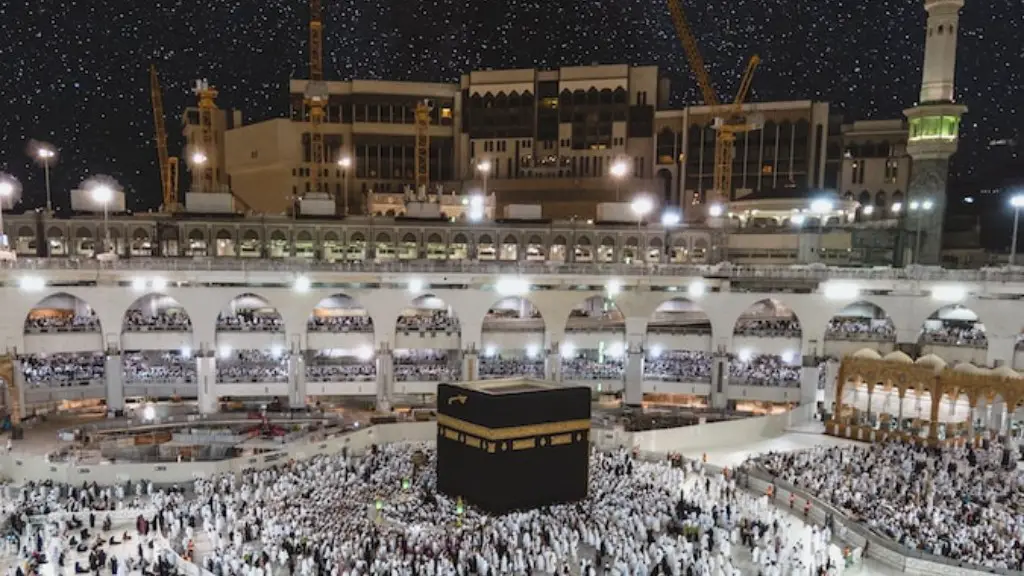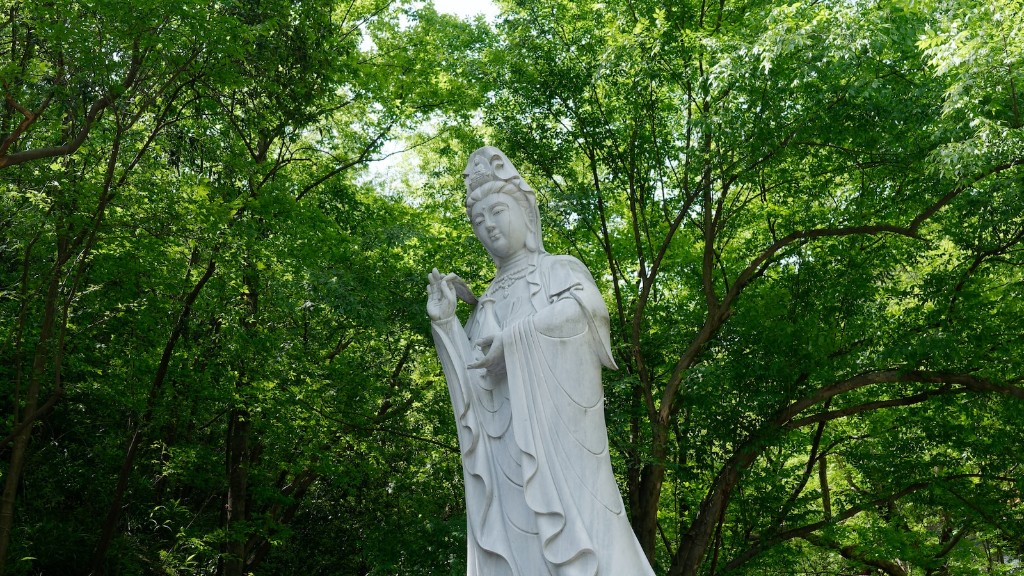Hinduism is the oldest and major religion of India, with approximately 80.5% of India’s population identifying as Hindu. It is hundreds of years old, with roots extending back to the Vedic and Pre-Vedic periods. Hinduism has no single founder and is comprised of a composite mixture of various beliefs and practices. It is based on seven fundamental principles and recognizes four primary goals of life, Dharma, Artha, Kama, and Moksha.
Hinduism has a diverse range of practices, beliefs, and philosophies and is generally regarded as a collection of diverse beliefs and traditions. Hindus believe in the existence of one Supreme Being or God, known as Brahman. This God is present in all creatures and all of nature and is believed to have created the world. Hindus believe in karma, the idea that one’s deeds in life will determine their destiny and shape their future in their next life.
Hinduism is more than a religion, it is also a way of life. It includes a number of complex rituals and ceremonies that provide an integral part of daily life for many Hindus. These rituals help to strengthen the bond between individuals and their families and are meant to give an individual strength and guidance.
Hinduism is not limited to India but is practiced all over the world. It is the third-largest religion after Christianity and Islam, and is practiced by more than a billion people worldwide.
Hinduism is a polytheistic religion, which means it is based on the belief in many gods. Hindus believe in a range of deities, each of which represents different aspects of the Supreme Being or Brahman. Some popular Hindu gods and goddesses include Brahma, Vishnu, Shiva, Ganesha, Saraswati, and Laxmi.
In Hinduism, the practice of yoga is of great importance and is considered to be a fundamental part of the religion. Yoga is seen as a means for spiritual advancement and for achieving physical and mental wellbeing. Practices such as prana, meditation, and pratyahara are all integral to the practice of yoga and help to foster a sense of calm and alignment with nature.
Hinduism recognizes the need for balance between spiritual and material life. Hinduism embraces the good and bad aspects of life and believes in the importance of living a harmonious life. This includes practicing compassion, tolerance, honesty, and humility.
Caste System
The caste system is a major component of Hinduism and is an important element in the culture and society of India. The caste system is a hierarchical system based on birth, where people are born into castes. Individuals are born into a particular caste and remain there for life. This has led to the rigid stratification of society and has created divisions between different castes.
In Hinduism, the caste system is seen as a means for maintaining order and harmony in society. Each caste is believed to have different duties and responsibilities, and people are expected to follow their natural roles. This has led to a system where the caste of an individual dictates their social and economic opportunities in life.
Despite attempts to limit its influence and authority, caste remains an important part of Indian society. It remains a major determinant of a person’s status and position in society, and many people continue to be discriminated against based on their caste or social class.
Today, many Hindus are increasingly challenging the caste system and are promoting the ideals of equality and social justice. There are movements and organizations which are working to raise the status of the lower castes and reduce the discrimination against them.
Scriptures
Hinduism is a religion of scriptures. The Vedas are the oldest scriptures of Hinduism and are believed to be the source of all knowledge. They provide guidance for daily life for Hindus and offer a rich source of philosophical and spiritual discourse. Other major scriptures include Upanishads, the Puranas, and the Mahabharata. There is also a vast number of additional Hindu texts and scriptures which provide further guidance and insight.
The Vedas and other Hindu scriptures serve as the foundation for the beliefs and teachings of the Hindu faith. These scriptures focus on the ultimate goal of life, the attainment of moksha, or ultimate spiritual liberation.
The scriptures and texts of Hinduism are vast and complex, providing guidance on all aspects of life, from family and marriage, to social and political duties. They are also rich in symbolism and metaphor and provide a great source of wisdom and inspiration.
The scriptures of Hinduism provide a framework for living a good and meaningful life. They are a source of comfort and solace and provide guidance in difficult and challenging times.
Festivals
Hinduism is a deeply cultural and spiritual religion, and festivals are an important part of that culture. Hindus celebrate a number of festivals throughout the year, ranging from the religious to the secular. These festivals provide a means of expressing faith and of celebrating the accomplishments and success of Hindus throughout the year.
The most important Hindu festivals are Holi, Diwali, and Durga Puja. Holi is the celebration of the beginning of spring, marked by the burning of effigies. Diwali is a celebration of the victory of good over evil, and Durga Puja is a celebration of Dionysius.
Other important festivals include Rath Yatra and Raksha Bandhan, which celebrate important Hindu values such as courage and unity. The Navratri and Ram Navami festivals celebrate the victory of the god Rama over the demon king Ravana.
These festivals are celebrated with great joy and enthusiasm, with Hindus gathering to feast, dance, and give thanks. They provide an opportunity for Hindus to come together and celebrate their faith and culture.
Dress and Way of Life
Hinduism is a religion that emphasizes modesty and simplicity. It is a belief system that promotes the idea that one should lead an ethical and spiritual life, and should abstain from materialistic and worldly desires.
Hindus generally dress modestly and in traditional attire. Men typically wear a dhoti, a type of wraparound garment, and women wear a sari or salwar kameez. There is also an emphasis on modesty and simplicity in dress, though this differs from community to community.
Hindus also follow a simple lifestyle and emphasize the need for balance between body, mind, and spirit. They emphasize spiritual development and the quest for inner peace and enlightenment.
Hindus believe that life should be lived in harmony with Nature and with others, and that it is important to give back to the community. The goal of Hinduism is to lead a virtuous life, which is seen as the path to liberation and enlightenment.
History and Legacy
Hinduism has been a major influence in the region for centuries and its influence can be seen in the culture and society of India. It has provided a framework by which social and moral principles are understood and by which a sense of community and belonging is generated.
The impact of Hinduism can be seen today in the values and beliefs of many people in India. It is a vital part of Indian culture and continues to shape the beliefs and values of many Indians today.
Hinduism has also been a major source of spirituality and faith for many people outside of India. It has been a source of inspiration for many people from all backgrounds, and its teachings have impacted many aspects of modern life.
The legacy of Hinduism has been one of tolerance and understanding, of love and compassion, and of seeking the truth of the soul. Its teachings have inspired generations of people, and its impact on the world has been profound.

